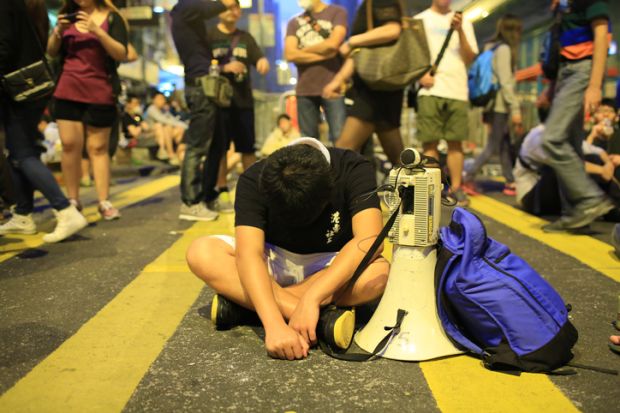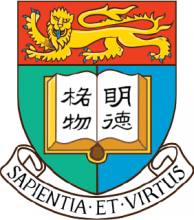Days after the University of Hong Kong announced that it would remove a Tiananmen Square memorial that had stood on its campus for decades, some academics in the city have said the event has prompted a reckoning for colleagues on the fence about leaving the city for good.
“I do know a number of people who said the removal of the Pillar of Shame would be the last straw; for some, this will be true, for others the line will just shift because it’s such a significant sacrifice to leave,” said one HKU academic.
The event comes after an onslaught of moves that have hobbled academic freedom in the city, for instance, the arrest of pro-democracy activist and former HKU law lecturer Benny Tai in March. In July, HKU severed ties with its students’ union. On 7 October, the students’ union at the Chinese University of Hong Kong (CUHK) disbanded.
Many academics said that, amid these events, plans for the statue’s removal are just another drop in the bucket.
“I simply view it as yet another shameful item in a sea of repressive measures,” said one CUHK researcher.
But others have been more taken aback. Daniel Elam, an assistant professor of comparative literature at HKU, said the announcement of the statue’s removal has marked a “huge turning point for me” and one that he did not imagine would arise so quickly.
He recalled talking with colleagues in the months before the passage of the controversial National Security Law, which came into effect in June 2020. Critics say the law silences free speech and especially statements critical of China’s government. It bears a maximum penalty of life imprisonment.
At the time, Dr Elam said that if the statue – perhaps the most visible symbol of differences in values between Hong Kong and mainland China on the HKU campus – were taken down, “I’d quit on the spot.”
Now, he said, “I need to decide if I’ll make good on that promise to myself.”
He is not alone. Despite what academics described as “amazing” pay in Hong Kong’s top institutions, many concede that their days in the city are numbered.
“Definitely there’s an exodus going on – in the last year we already started to lose people, and there’s going to be more [departures] coming,” said another academic, who preferred to remain anonymous.
But those considering leaving face a difficult decision.
“It is very, very hard to find other work because the academic job market…is virtually non-existent,” said an HKU faculty member. “This means that some are grappling with the question of whether to stay.”
Some of them may need to come to terms with abandoning university work, said another person.
“I have other colleagues who haven’t made the jump yet but are making the mental adjustment – they know it’s possible that if they leave this job and move back to US, they may not find another job in academia.”
Register to continue
Why register?
- Registration is free and only takes a moment
- Once registered, you can read 3 articles a month
- Sign up for our newsletter
Subscribe
Or subscribe for unlimited access to:
- Unlimited access to news, views, insights & reviews
- Digital editions
- Digital access to THE’s university and college rankings analysis
Already registered or a current subscriber? Login










